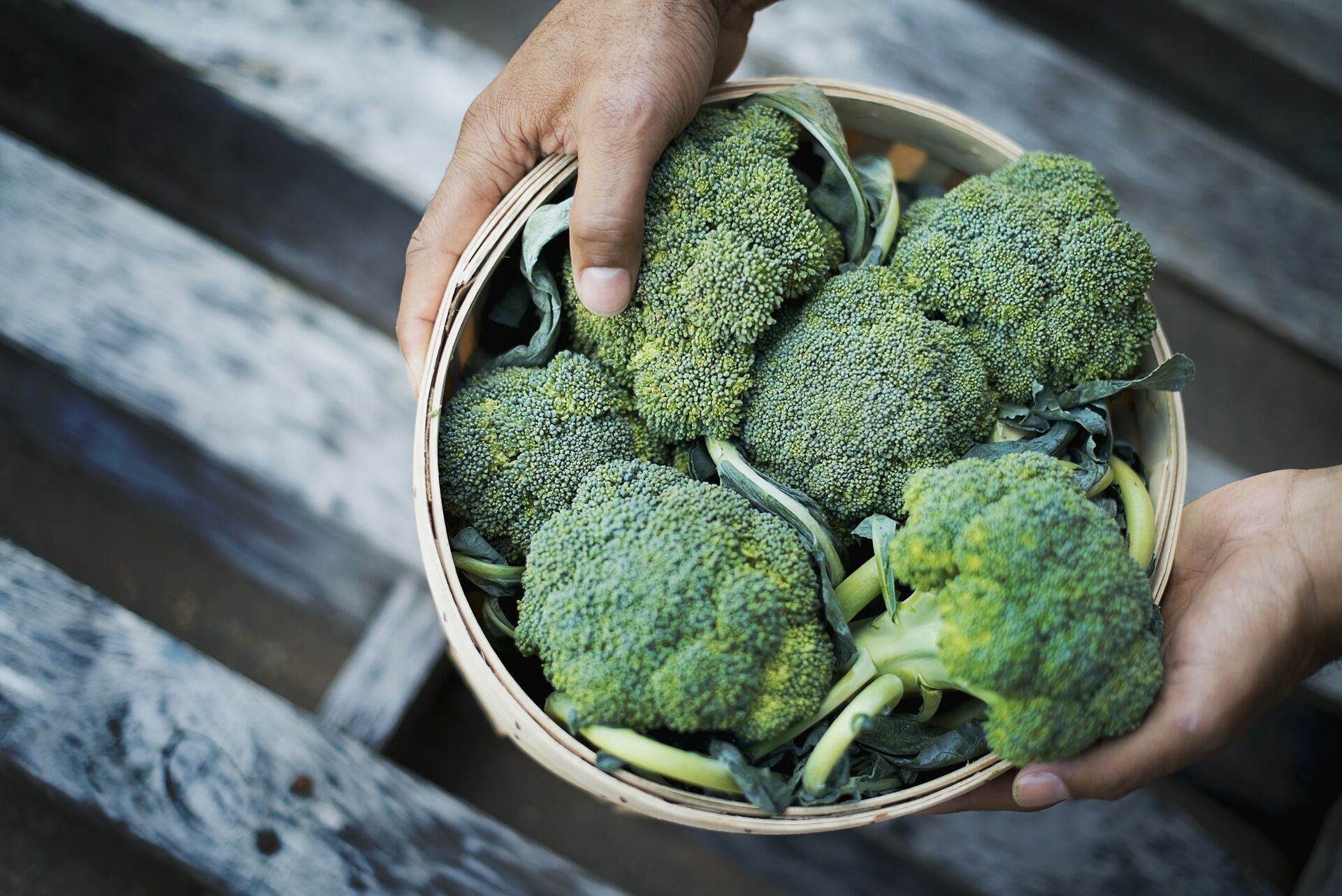

FAQs
Why Is It So Hard For Me To Fart
Modified: August 5, 2023
Discover the answers to your general questions about why it can be difficult to fart. Learn about the causes and find helpful solutions in our comprehensive guide.
(Many of the links in this article redirect to a specific reviewed product. Your purchase of these products through affiliate links helps to generate commission for Under-tec.com, at no extra cost. Learn more)
Table of Contents
Introduction
Flatulence, or passing gas, is a natural bodily function that everyone experiences. It’s a normal part of the digestive process and can provide relief from discomfort caused by gas buildup in the intestines.
However, for some people, farting can be a difficult task. They may find it challenging to release gas from their digestive system, leading to discomfort, bloating, and even pain. If you have ever struggled with farting or wondered why it seems so hard for you to do so, you’re not alone.
In this article, we will explore the various factors that can contribute to difficulties in farting. Understanding the underlying causes can help you find solutions to alleviate the discomfort and improve your overall digestive health.
While it is essential to maintain proper etiquette when it comes to passing gas, it is equally important to address any discomfort or difficulty associated with farting. So, let’s dive in and explore the reasons why farting may be challenging for you.
Understanding Flatulence
Before we delve into the reasons why farting can be challenging, let’s first understand the process of flatulence. Flatulence, also known as passing gas or farting, is a natural bodily function that occurs as a result of the digestion process.
When we eat or drink, our bodies break down the food into smaller molecules through a process called digestion. The stomach and small intestine absorb nutrients from the food, while the undigested particles, including fiber and carbohydrates, move into the large intestine.
In the large intestine, bacteria break down these undigested particles through fermentation. During this process, gas is produced, consisting mainly of nitrogen, oxygen, carbon dioxide, hydrogen, and small amounts of methane and sulfur compounds.
As the gas builds up in the intestine, the body naturally releases it through the rectum, resulting in the act of farting. This release provides relief from the pressure and discomfort caused by the gas buildup.
It is important to note that every individual has a unique farting pattern, and there is no specific frequency or volume considered normal. Both the number of times and the loudness of farts can vary from person to person.
Now that we have a basic understanding of flatulence, let’s explore the factors that can contribute to difficulties in farting.
Factors that Affect Farting
While farting is a natural bodily function, there are several factors that can affect your ability to release gas. These factors can vary from person to person and may include dietary habits, digestive disorders, physical factors, and even psychological factors.
Dietary Habits: The foods and beverages you consume play a significant role in the production of gas and can affect your farting patterns. Foods high in carbohydrates and fiber, such as beans, lentils, broccoli, cabbage, and onions, are known to produce more gas during digestion. Carbonated drinks and artificial sweeteners can also contribute to gas buildup.
Digestive Disorders: Certain digestive disorders can interfere with the proper digestion and absorption of food, leading to difficulties in farting. Conditions such as irritable bowel syndrome (IBS), inflammatory bowel disease (IBD), and small intestinal bacterial overgrowth (SIBO) can cause excessive gas production or slow down the movement of gas through the intestines.
Physical Factors: Physical factors can also contribute to difficulties in farting. For example, if you have a weak or dysfunctional anal sphincter, the muscle responsible for controlling the release of gas, you may experience trouble passing gas. Additionally, surgeries or procedures that affect the digestive tract, such as abdominal surgeries or intestinal blockages, can also impact farting ability.
Psychological Factors: Believe it or not, psychological factors can influence farting difficulties too. Stress, anxiety, and holding back gas due to social or cultural norms can lead to the suppression of the natural urge to fart. This can result in a buildup of gas and discomfort in the digestive system.
It’s important to note that these factors are not exclusive to one another and can interact to varying degrees. The key to addressing farting difficulties lies in identifying the underlying causes that apply to your specific situation.
In the next sections, we will explore each factor in more detail and provide possible remedies to alleviate difficulties in farting.
Dietary Habits and Farting
One of the major factors that can affect your ability to fart is your dietary habits. The foods and beverages you consume can play a significant role in gas production and can either ease or hinder the process of passing gas.
Certain foods are notorious for causing excessive gas production during digestion. These include beans, lentils, broccoli, cabbage, onions, Brussels sprouts, and carbonated drinks. These foods are high in carbohydrates and fiber, which can be difficult for the body to break down completely, leading to increased gas production.
Additionally, some individuals may have specific food intolerances, such as lactose intolerance or gluten sensitivity, which can contribute to increased gas production and digestive discomfort. Consuming these trigger foods can result in excessive bloating and difficulties in passing gas.
While it may seem counterintuitive, reducing the intake of high-fiber foods temporarily can actually help alleviate gas and bloating. Gradually reintroducing them into your diet and allowing your body to adjust can help improve your tolerance and reduce gas production.
In addition to food choices, it’s essential to pay attention to eating habits that can contribute to difficulties in farting. Eating too quickly can cause you to swallow air, which can lead to gas buildup in the digestive system. Similarly, chewing gum or sucking on hard candies can also increase the amount of air swallowed.
It’s recommended to eat meals at a slower pace, chew food thoroughly, and avoid habits that promote excessive air swallowing. This can help minimize gas production and make farting a more natural process.
Moreover, it’s crucial to stay hydrated and drink an adequate amount of water throughout the day. Drinking enough water can help soften the stools and promote regular bowel movements, which can aid in the release of gas. Dehydration, on the other hand, can lead to harder stools and constipation, which can make farting more difficult.
Keeping a food diary and noting down the specific foods that seem to cause gas and discomfort can be helpful in identifying potential triggers. Experimenting with your diet and making gradual changes can allow you to find a balance that minimizes gas production and facilitates farting.
In the next sections, we will explore other factors that can contribute to difficulties in farting and provide potential remedies to alleviate these issues.
Digestive Disorders and Farting Difficulties
Digestive disorders can significantly impact your ability to fart and can contribute to difficulties in passing gas. Conditions such as irritable bowel syndrome (IBS), inflammatory bowel disease (IBD), and small intestinal bacterial overgrowth (SIBO) can disrupt the normal digestive process and lead to excessive gas production or hinder the movement of gas through the intestines.
Irritable Bowel Syndrome (IBS): IBS is a chronic gastrointestinal disorder characterized by abdominal pain, bloating, and changes in bowel habits. Many individuals with IBS experience excessive gas and difficulties in passing it. The exact cause of IBS is not fully understood, but factors such as food intolerances, abnormal muscle contractions in the intestines, and changes in gut bacteria may all play a role.
Inflammatory Bowel Disease (IBD): IBD refers to a group of chronic conditions that cause inflammation in the digestive tract. Crohn’s disease and ulcerative colitis are the two main types of IBD. Inflammation in the intestines can lead to increased gas production and hinder the normal movement of gas through the digestive system. This can result in bloating, abdominal pain, and difficulties in passing gas.
Small Intestinal Bacterial Overgrowth (SIBO): SIBO occurs when there is an overgrowth of bacteria in the small intestine. This overgrowth can disrupt the normal digestion and absorption of food, leading to increased gas production. SIBO can cause a range of digestive symptoms, including bloating, abdominal discomfort, and difficulties in passing gas.
If you suspect that a digestive disorder may be contributing to your farting difficulties, it is essential to consult with a healthcare professional. They can evaluate your symptoms, perform necessary tests, and provide an accurate diagnosis. Treatment options for digestive disorders can vary, but may include dietary changes, medication, and lifestyle modifications.
Working with a registered dietitian who specializes in gut health can also be beneficial. They can help you identify trigger foods, develop a personalized meal plan, and guide you through the process of managing your symptoms and improving your overall digestive health.
Keep in mind that managing digestive disorders takes time and patience. It may involve trials and errors to find the right treatment approach for your specific condition. With the right guidance and support, however, it is possible to find relief from your farting difficulties and achieve better digestive well-being.
In the next sections, we will explore other factors that can contribute to difficulties in farting and provide potential remedies to alleviate these issues.
Physical Factors and Farting Issues
Physical factors can play a significant role in causing difficulties in farting. These factors can range from weak or dysfunctional anal sphincter muscles to surgeries or procedures that affect the digestive tract.
Anal Sphincter Issues: The anal sphincter is a ring of muscles that surrounds the anal opening and helps control the release of gas and stool. If these muscles are weak or dysfunctional, it can make it challenging to control or release gas effectively. Conditions such as anal sphincter dysfunction or damage can lead to difficulties in farting and may require medical intervention.
Digestive Surgeries or Procedures: Certain surgeries or procedures that involve the digestive tract can impact your ability to fart. Abdominal surgeries, such as colon surgeries or hernia repairs, can disrupt the normal functioning of the digestive system and temporarily impair the muscles involved in gas release. Additionally, procedures like colonoscopies or endoscopies can introduce air into the digestive tract, leading to temporary bloating and difficulties in passing gas.
Intestinal Obstructions: Intestinal obstructions occur when there is a blockage in the intestines that prevents the normal passage of gas and stool. These obstructions can be due to conditions like bowel adhesions, hernias, or tumors. When an obstruction occurs, it can lead to significant bloating, abdominal pain, and difficulties in passing gas.
If you are experiencing physical factors that are hindering your ability to fart, it is important to consult with a healthcare professional who can assess your situation and provide appropriate recommendations. Depending on the specific issue, treatment options may vary.
For weak or dysfunctional anal sphincter muscles, pelvic floor exercises, also known as Kegel exercises, may be beneficial. These exercises can help strengthen the muscles involved in gas release and improve overall muscle tone in the pelvic region.
In cases where surgeries or procedures have caused temporary difficulties in farting, it is essential to follow the post-operative instructions provided by your healthcare team. These instructions may include strategies to promote a healthy recovery, such as gentle movements and avoiding foods that can exacerbate gas production.
For intestinal obstructions or more severe cases, medical interventions or surgical procedures may be necessary to alleviate the blockage and restore normal digestive function.
It is crucial to reach out to a healthcare professional to determine the underlying cause of your physical factors and discuss appropriate treatment options. With proper medical guidance and intervention, it is possible to overcome physical barriers and improve your ability to fart comfortably.
In the next sections, we will explore other factors that can contribute to difficulties in farting and provide potential remedies to alleviate these issues.
Psychological Factors and Farting Problems
Believe it or not, psychological factors can play a role in experiencing difficulties with farting. Stress, anxiety, and cultural or social norms surrounding passing gas can all contribute to problems in this area.
Stress and Anxiety: Stress and anxiety can have a profound impact on the digestive system. When we are stressed or anxious, our bodies enter a “fight or flight” response, diverting resources away from non-essential functions, such as digestion. This can lead to digestive disturbances, including difficulties in passing gas. Additionally, stress and anxiety can cause muscles in the digestive tract to tense up, hindering the natural release of gas.
Cultural and Social Norms: Cultural and social norms surrounding farting can also contribute to difficulties. Many cultures view passing gas as embarrassing or inappropriate, leading individuals to hold in gas or suppress the natural urge to fart. While it is important to observe social etiquette, excessively holding in gas can lead to discomfort and potentially contribute to digestive issues.
If psychological factors are causing difficulties with farting, it can be helpful to address and manage the underlying stress and anxiety. Engaging in stress-reducing activities such as meditation, deep breathing exercises, yoga, or therapy can help promote relaxation and better digestion.
Furthermore, it can be beneficial to develop a more open and understanding mindset around passing gas. Recognize that farting is a natural bodily function that everyone experiences. Finding a balance between social norms and your own physical comfort can help reduce tension and promote a healthier relationship with farting.
Engaging in regular exercise can also help alleviate stress and improve digestion. Physical activity stimulates the movement of gas through the intestines and promotes better overall gut health.
It’s important to note that if psychological factors are significantly impacting your well-being or daily functioning, it is always best to seek support from a mental health professional who can provide appropriate guidance and strategies for managing stress and anxiety.
In the next section, we will explore potential remedies for difficulties in farting, taking into account the various factors we have discussed.
Remedies for Difficulty in Farting
If you’re experiencing difficulties in farting, there are several remedies and strategies you can try to alleviate the discomfort and promote better digestion. It’s important to note that the effectiveness of these remedies may vary depending on the underlying cause of your farting difficulties. Consulting with a healthcare professional is always advised to determine the best course of action.
Dietary Modifications: Adjusting your diet can have a significant impact on gas production and farting difficulties. Consider making changes such as reducing the intake of gas-producing foods like beans, lentils, broccoli, and cabbage. Gradually reintroduce these foods to your diet to allow your body to adjust. It’s also helpful to chew food thoroughly, eat at a slower pace, and avoid habits that promote excessive air swallowing, such as chewing gum.
Managing Digestive Disorders: If you have been diagnosed with a digestive disorder like IBS or IBD, working with a healthcare professional can help you manage your symptoms effectively. They may recommend dietary modifications, such as a low FODMAP diet for IBS or an anti-inflammatory diet for IBD. Medications, probiotics, and stress management techniques can also be part of the treatment plan.
Physical Therapy and Exercises: For individuals with weak or dysfunctional anal sphincter muscles, pelvic floor exercises, also known as Kegel exercises, can be beneficial. These exercises can help strengthen the muscles involved in gas release, improving control and facilitating farting.
Addressing Psychological Factors: If stress and anxiety are contributing to difficulties in farting, it can be helpful to engage in stress-reducing activities. Practices like meditation, deep breathing exercises, yoga, regular exercise, and therapy can help manage stress levels and promote better digestion.
Seeking Professional Help: If you’ve tried these remedies and are still experiencing significant difficulties in farting, it’s important to consult with a healthcare professional. They can further evaluate your situation, perform necessary tests, and provide appropriate treatment options based on your specific needs.
Remember, finding the right remedy may involve a combination of approaches and some trial and error. Each individual is unique, and what works for one person may not work for another. It’s essential to be patient and persistent in finding the solution that works best for you.
Incorporating these remedies into your lifestyle can help improve your ability to fart comfortably and promote better digestive health overall.
Now that we’ve explored the various factors contributing to difficulties in farting and discussed potential remedies, let’s move on to the concluding section.
Conclusion
Farting is a natural bodily function that provides relief from gas buildup in the digestive system. However, for some individuals, farting can be challenging and uncomfortable. Various factors can contribute to difficulties in farting, including dietary habits, digestive disorders, physical factors, and psychological factors.
By understanding these factors, we can explore remedies and strategies to alleviate farting difficulties. Making dietary modifications, managing digestive disorders, engaging in physical therapy and exercises, addressing psychological factors, and seeking professional help can all play a role in improving the ability to fart comfortably.
It is important to remember that finding the right remedy may require patience, persistence, and individualized approaches. Consulting with healthcare professionals, such as dietitians, therapists, and doctors, can provide valuable guidance in managing farting difficulties.
Ultimately, the goal is to achieve better digestive health and find a balance between social norms and physical comfort when it comes to passing gas. By implementing appropriate remedies and strategies, individuals can experience relief from discomfort and improve their overall well-being.
So, if you find yourself struggling with farting, know that you’re not alone and there are solutions out there. Take the necessary steps to understand and address the underlying causes, and work towards finding relief and comfort in your digestive health.










